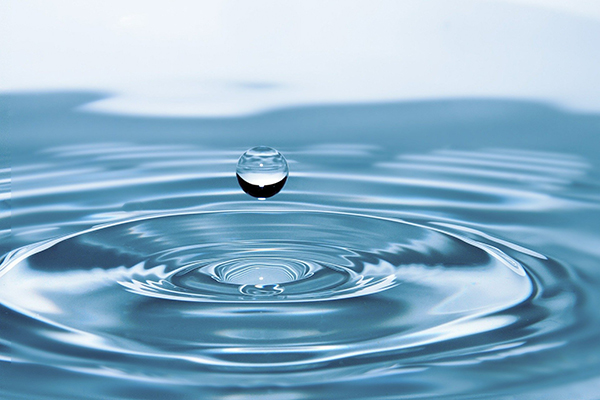
Why all the fuss about hydration?
H2O helps regulate body temperature, transports nutrients throughout the body and cushions joints. Not only that, but it is essential for flushing waste products and toxins from the body. Environmental pollutants, household chemicals, alcohol, medications and end products from your body’s natural chemical reactions are processed and chemically tagged so they can hitch a ride with water to travel out of your body via sweat, urine and stool. If you don’t have enough water to get them out, toxins can recirculate in your body and interfere with cellular function. (You can read more about the detoxification process and ways to support it here.)
When you are not well hydrated, you may experience:
- an increase in muscle cramping
- constipation
- headaches
- brain fog
- fatigue
Always consult your health care provider first if you are experiencing severe or prolonged symptoms, but sometimes the simplest solution is the best place to start. Make sure you’re getting enough water and see what happens.
As the temperature increases, so should your water intake. #saslife Share on X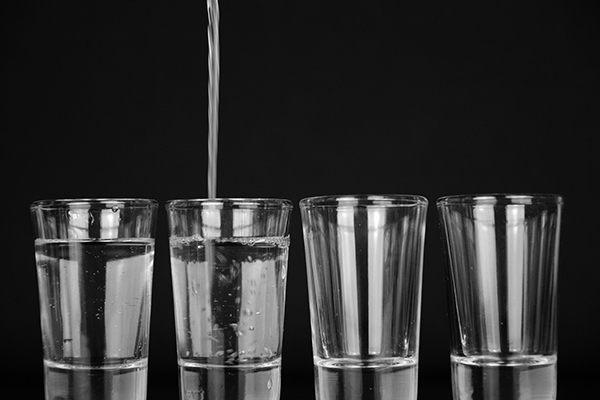
How much is enough?
There is no one-size-fits-all rule for water intake. Hydration needs vary from person to person based on age, sex, body size, health status, pregnancy/breast-feeding status and physical activity levels. The weather and the foods and other beverages you drink also influence your water needs. So how do you know how much is enough for you?
Drink more water if:
- You are thirsty. Simple but true.
- Your urine in the toilet appears darker than lemonade. (If you are taking a multivitamin or B vitamins, this method won't work because they can turn your urine bright yellow despite adequate hydration.)
As a general guideline, aim for ½ ounce of water for every pound of body weight. For example: If you weigh 200 pounds, aim for 100 oz. of water per day (12.5 eight oz. cups). You’ll likely need even more if you’ve been exercising or have been sick.
If you are on a very low carbohydrate diet or are engaging in prolonged intense exercise, you may need to replenish electrolytes along with water. Talk to a Registered Dietitian Nutritionist about your individual needs.
Consult your health care provider if:
- You are constantly thirsty despite drinking regularly; you could have a serious condition.
- You are taking a diuretic or you have a specific health concern related to fluid intake.
Making it happen
It’s one thing to know how much water you should drink. Actually doing it, can take some practice. Here are a few tips you can try to help you reach your goal.
- Drink a full glass of water as soon as you wake up.
- Measure your favorite water bottle or cup to see how many ounces it will hold to help you gauge your water consumption for the day. This glass water bottle with time-marked measurements might help.
- If the thought of polishing off a large bottle of water several times a day is overwhelming, keep a small glass of water by you and refill each time you finish.
- Keep track. Set reminders on your phone or try out a hydration app.
- Make it tastier. Infuse your water with fruit, herbs, cucumbers, etc. A fast and easy way to do this is to add some frozen fruit to your water. See the recipes below for a couple of ideas.
- Don’t forget about water-rich foods like cucumber, grapefruit and other fruits and non-starchy vegetables. You can get 20-30% of your water needs from hydrating foods.
What other strategies have helped you up your water intake? Add them in the comments!
Quality matters
- Tap water in many communities contains potentially harmful chemicals. Filtering your drinking water is recommended.
- Check out the Environmental Working Group (EWG)'s Comprehensive Tap Water Database to find out the level of contaminants in tap water by utility location.
- EWG’s Water Filter Guide provides guidance on picking the right water filter for you.
- Pass on the plastic bottles. Choose glass or stainless steel bottles instead. Even if the bottle is BPA-free, plastic water bottles can contain other chemicals that could leach into the water. The potential for contamination from plastics increases the longer the water spends in the bottle and the hotter the water is.
Frequently asked questions
Do coffee, tea, juice, flavored water and beer count? – They are liquids.
Anything you drink can potentially have some net hydrating effects, but beware of overdoing beverages with caffeine, sugar (natural or added) or artificial sweeteners for other health reasons. Note for alcohol: the higher the alcohol content by volume, the less hydrating/more dehydrating it is.
Does temperature matter?
If you need a little help getting your bowels moving, warm/hot liquids can relax the smooth muscles of your digestive system. On the other hand, cold water has been shown to blunt the rise in body temperature during endurance training.
Is it okay to chug a lot of water early in the day or several times throughout the day to meet my goal, or do I need to spread it out?
Pacing your water intake throughout the day will keep your body more consistently hydrated, but it’s okay to frontload your water a bit if it helps to keep you on the right track. It also makes sense to stop drinking water 2-3 hours before bedtime if you’re prone to waking up to use the bathroom during the night.
Should I drink a full glass of water right before I eat to help curb my appetite?
This can be helpful for some people as research shows that some people confuse thirst for hunger, but if you have digestive issues such as acid reflux, you might find you do better when avoiding too much water with meals.
Sources:
Looking for ways to add some flavor to your water?
For more information on hydration and additional recipes to mix it up, read Soft Drinks, Diet Sodas and Juices, Oh My!, Healthy Hydration: Goodbye Boring Water! and see Berry Lime Water and Lemon Ginger Water recipes below.
Berry Lime Water
Serving: 1 pitcher
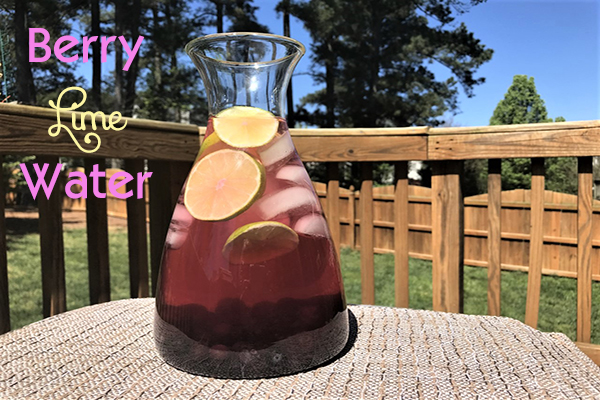 Ingredients
Ingredients
¼ cup frozen blueberries or raspberries
1 lime sliced
40-50 oz filtered or sparkling water
1 cup ice (optional)
Directions
Add frozen berries and lime to a pitcher of water.
Allow to sit at room temperature for 30-60 minutes.
Serve room temperature or over ice.
Store in refrigerator for up to 3 days.
Note: The lime flavor continues to get more intense and bitter from the rinds with time. Remove the lime if storing more than a few hours so it does not overpower the blueberry flavor.
Lemon Ginger Water
Serving: 1 pitcher
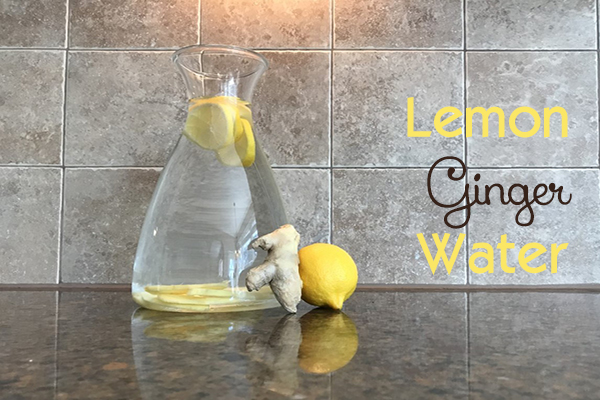 Ingredients
Ingredients
2-3 inches of fresh ginger, peeled and thinly sliced
½ lemon, sliced
50 oz filtered or sparkling water
Directions
Add lemon and ginger to a pitcher of room temperature or warm water.
Allow to sit at room temperature for 30-60 minutes.
Serve room temperature or over ice.
Store in refrigerator for up to 3 days. The flavor will get more intense with time.
Note: As an alternative, pour hot/boiling water over ginger and lemon for a soothing alternative to coffee or tea. The flavor will be fully infused in 5-15 minutes.
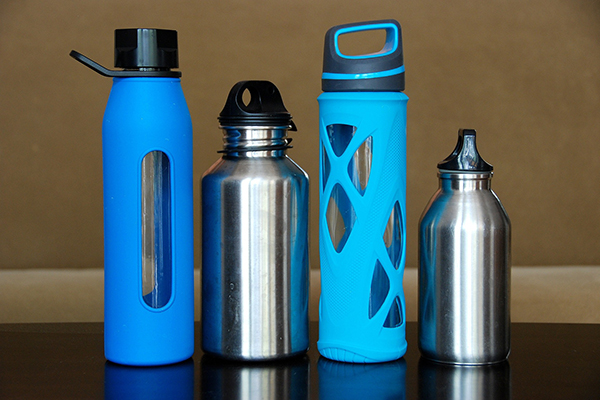
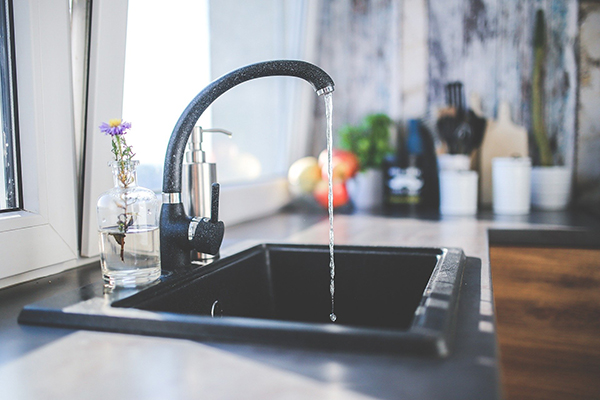
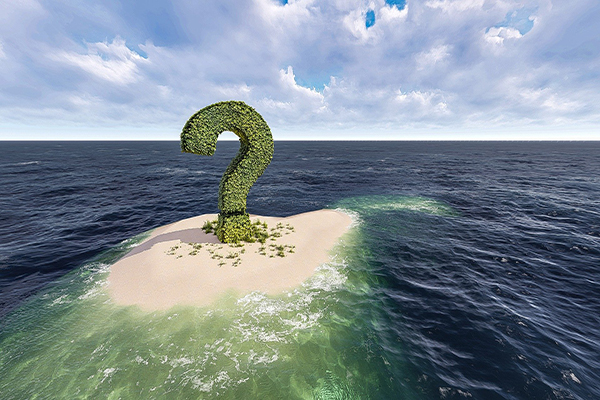

2 Comments
some of my colleagues here add cucumbers and that's worked out really well.
Adding cucumber is a refreshing option! 🙂